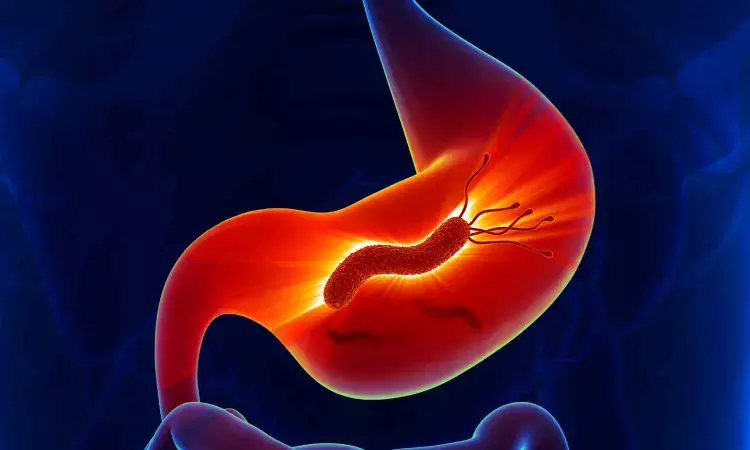- Home
- Medical news & Guidelines
- Anesthesiology
- Cardiology and CTVS
- Critical Care
- Dentistry
- Dermatology
- Diabetes and Endocrinology
- ENT
- Gastroenterology
- Medicine
- Nephrology
- Neurology
- Obstretics-Gynaecology
- Oncology
- Ophthalmology
- Orthopaedics
- Pediatrics-Neonatology
- Psychiatry
- Pulmonology
- Radiology
- Surgery
- Urology
- Laboratory Medicine
- Diet
- Nursing
- Paramedical
- Physiotherapy
- Health news
- Fact Check
- Bone Health Fact Check
- Brain Health Fact Check
- Cancer Related Fact Check
- Child Care Fact Check
- Dental and oral health fact check
- Diabetes and metabolic health fact check
- Diet and Nutrition Fact Check
- Eye and ENT Care Fact Check
- Fitness fact check
- Gut health fact check
- Heart health fact check
- Kidney health fact check
- Medical education fact check
- Men's health fact check
- Respiratory fact check
- Skin and hair care fact check
- Vaccine and Immunization fact check
- Women's health fact check
- AYUSH
- State News
- Andaman and Nicobar Islands
- Andhra Pradesh
- Arunachal Pradesh
- Assam
- Bihar
- Chandigarh
- Chattisgarh
- Dadra and Nagar Haveli
- Daman and Diu
- Delhi
- Goa
- Gujarat
- Haryana
- Himachal Pradesh
- Jammu & Kashmir
- Jharkhand
- Karnataka
- Kerala
- Ladakh
- Lakshadweep
- Madhya Pradesh
- Maharashtra
- Manipur
- Meghalaya
- Mizoram
- Nagaland
- Odisha
- Puducherry
- Punjab
- Rajasthan
- Sikkim
- Tamil Nadu
- Telangana
- Tripura
- Uttar Pradesh
- Uttrakhand
- West Bengal
- Medical Education
- Industry
Elevated Triglyceride-Glucose Index Linked to Higher Mortality Risks in Helicobacter pylori-Infected Patients: Study Finds

China: A recent national cohort study published in BMC Infectious Diseases has shed light on the significant association between the triglyceride-glucose (TyG) index and mortality risks in patients infected with Helicobacter pylori (H. pylori). The study, which analyzed data from a large patient cohort, suggests that elevated TyG index levels are strongly linked to an increased risk of both all-cause and cardiovascular mortality in individuals with H. pylori infection.
Although H. pylori infection is associated with insulin resistance and increased mortality, research on the relationship between insulin resistance indices and health outcomes in these patients remains limited. One such index, the TyG index, calculated from fasting triglycerides and glucose levels, has been linked to metabolic disorders such as insulin resistance and cardiovascular disease. However, its specific impact on mortality risks in H. pylori-infected individuals has not been comprehensively explored until now, highlighting a gap in existing research.
Against the above background, Xiaoyan Cai, Department of Scientific Research and Education, Shunde Hospital, Southern Medical University, Foshan, China, and colleagues investigate the relationship between the triglyceride-glucose index, a marker of insulin resistance, and the risks of all-cause and cardiovascular mortality in these patients.
For this purpose, the researchers analyzed NHANES 1999–2000 data to evaluate the relationship between the TyG index and all-cause and cardiovascular mortality in H. pylori-infected patients, employing weighted Cox models and restricted cubic spline analysis.
Key Findings:
- The study included 627 participants with a median follow-up of 20.8 years, during which 108 all-cause and 28 cardiovascular deaths occurred.
- Cox models revealed that the TyG index was associated with a hazard ratio (HR) of 1.70 for all-cause mortality and an HR of 2.90 for cardiovascular mortality.
- Restricted cubic spline analysis confirmed a linear relationship between the TyG index and both all-cause and cardiovascular mortality risks.
- Stratified analyses indicated that the association was significant in most subgroups, though no significant interaction was found.
The researchers used nationally representative NHANES data to investigate the link between the TyG index and mortality in H. pylori-infected patients, strengthening the generalizability of their findings through multiple subgroup and sensitivity analyses. However, they noted several limitations. As an observational study, it cannot establish causality, and the use of serologic H. pylori IgG as a diagnostic tool may not accurately reflect the current infection status, as it cannot distinguish between active and past infections. Additionally, the NHANES data were limited to 1999-2000, and the relatively small sample size may affect the broader applicability of the results. Furthermore, potential confounders like dietary habits and physical activity were not accounted for.
"Despite these limitations, the study underscores the association between a higher TyG index and increased all-cause and cardiovascular mortality in H. pylori-infected patients, suggesting that evaluating the TyG index could improve risk assessment for this population," the researchers concluded.
Reference:
Cao, Y., Li, L., Qiu, F. et al. Triglyceride-glucose index and mortality risks in Helicobacter pylori-infected patients: a national cohort study. BMC Infect Dis 25, 180 (2025). https://doi.org/10.1186/s12879-025-10556-8
Dr Kamal Kant Kohli-MBBS, DTCD- a chest specialist with more than 30 years of practice and a flair for writing clinical articles, Dr Kamal Kant Kohli joined Medical Dialogues as a Chief Editor of Medical News. Besides writing articles, as an editor, he proofreads and verifies all the medical content published on Medical Dialogues including those coming from journals, studies,medical conferences,guidelines etc. Email: drkohli@medicaldialogues.in. Contact no. 011-43720751


